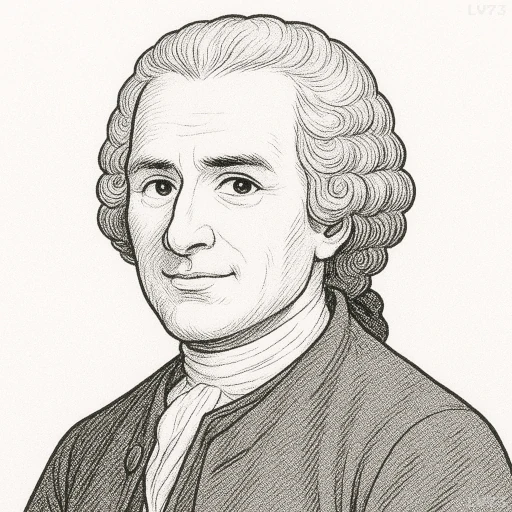“It is unnatural for a majority to rule, for a majority can seldom be organized and united for specific action, and a minority can.”

- June 28, 1712 – July 2, 1778
- Born in Geneva
- Philosopher, political philosopher, writer, composer
table of contents
Quote
“It is unnatural for a majority to rule, for a majority can seldom be organized and united for specific action, and a minority can.”
Explanation
In this quote, Jean-Jacques Rousseau expresses skepticism about the ability of a majority to effectively govern, suggesting that majority rule is inherently flawed due to the challenges in achieving consensus and action. Rousseau argues that a majority, being large and diverse, often lacks the organization and unity needed to make decisive choices or implement effective governance. In contrast, a minority—though smaller in number—can be more easily coordinated and focused in its efforts, enabling it to act with greater clarity and effectiveness. This critique of majority rule challenges the conventional idea of democracy, suggesting that while a majority might represent the general will of the people, it may fail to translate that will into concrete action.
Historically, Rousseau’s argument is tied to his ideas about the general will and the social contract as discussed in The Social Contract. He contended that true political power should be rooted in the general will of the people, but that this “will” is not simply the sum of individual desires or the desires of the majority. Instead, it should reflect a collective, rational, and unified purpose that may be more easily represented by a smaller, more cohesive group. Rousseau was critical of direct democracy in practice, where the sheer number of individuals might lead to confusion, division, or a lack of effective action.
In modern times, this quote resonates with debates about representation and decision-making in democratic systems. In many political systems, decision-making is often seen as inefficient or cumbersome when trying to achieve broad consensus among a large and diverse population. The quote raises the question of whether a democratic majority can always represent the best interest of society as a whole, or if a more focused minority can sometimes enact change more effectively. Rousseau’s idea encourages reflection on the limits of majority rule and the need for leadership or structures that can bring about coherent action and decisive governance, even in systems that prioritize democratic participation.
Would you like to share your impressions or related stories about this quote in the comments section?




